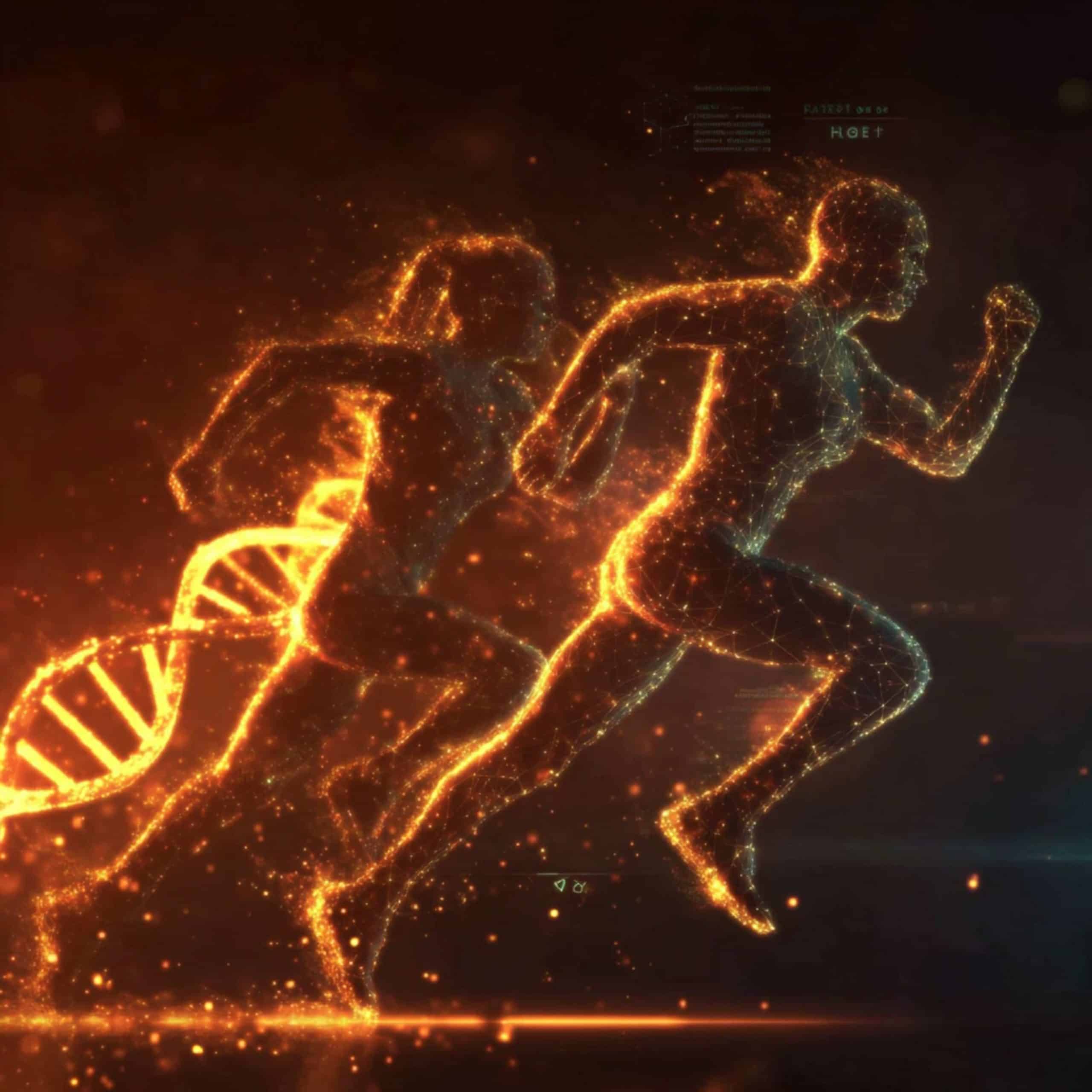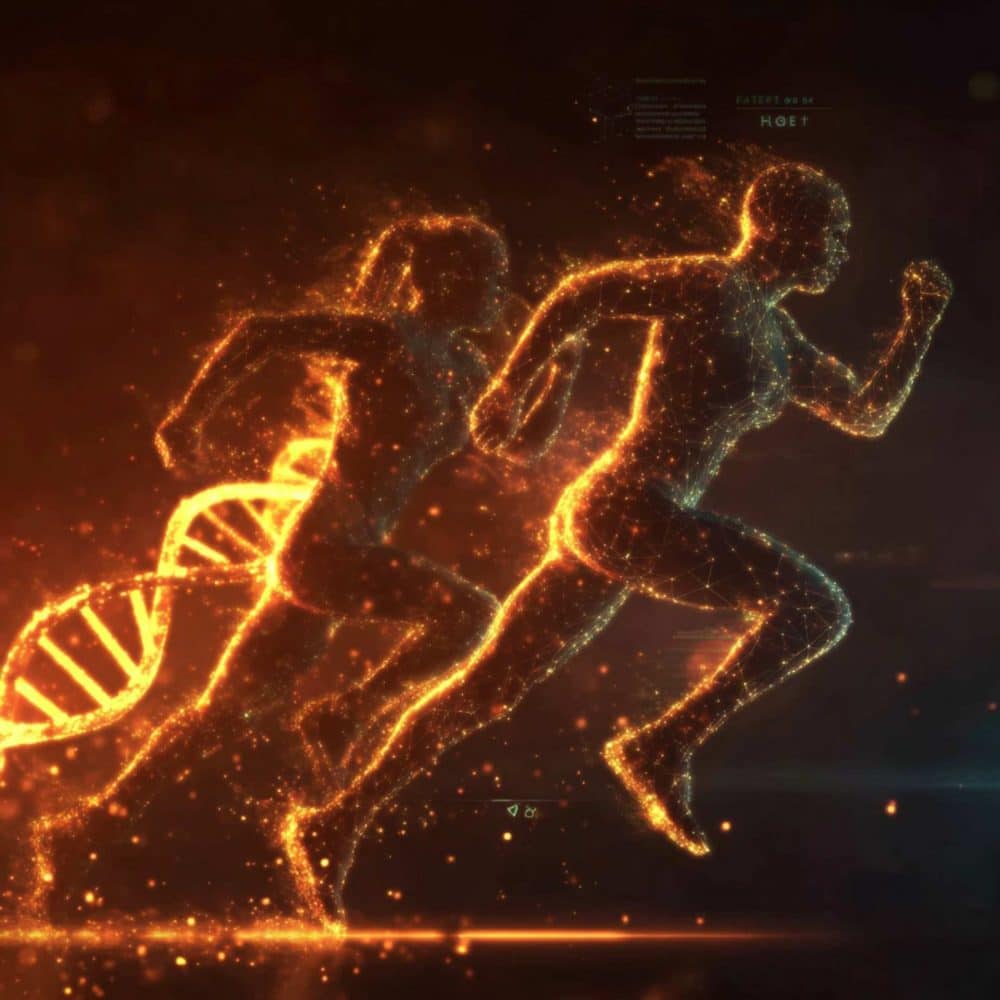Fitness & Exercise Panel-Pathology
₹ 24,499.00 Original price was: ₹ 24,499.00.₹ 14,999.00Current price is: ₹ 14,999.00.
Everyone has a unique exercise profile based on genetics. Some people excel at endurance sports like marathon running, while others are naturally better at power activities like sprinting or weightlifting. This panel examines 75+ genes related to strength, stamina, recovery, and injury risk. Pathology adds muscle enzyme and bone health markers, ensuring your training plan matches both your DNA and current body status.
Why it matters:
Most people exercise blindly, risking injury and burnout.
This test personalizes training so you see results faster, recover better, and avoid setbacks.
Training blindly can lead to frustration, injuries, or wasted effort. By combining DNA and pathology, this panel helps you know whether you are better suited for endurance or power sports, how quickly you recover, which supplements work best, and what risks you must avoid. This way, you can train smarter, reach goals faster, and protect long-term fitness.
Risks of not doing this test:
- Slower progress from mismatched training style.
- Greater risk of preventable injuries and chronic pain.
- Frustration and burnout from wasted effort.
How Pathology Adds Value
Pathology validates your current fitness condition:
- CPK (Creatine Phosphokinase) – muscle enzyme showing overtraining or injury.
- Calcium & Vitamin D – essential for bone strength and injury prevention.
- Inflammatory Markers (CRP, ESR) – show recovery quality and hidden inflammation.
- Hormones (Testosterone, Cortisol) – affect muscle growth, stress, and recovery.
What you’ll learn:
Whether your muscles are built for strength, endurance, or a balance.
VO₂ max potential, sprint performance, and recovery rate.
Injury risks for tendons, joints, or cramping (COL5A1, COL2A1).
Response to supplements like caffeine or creatine.
Whether your muscles are built for strength, endurance, or a balance.
VO₂ max potential, sprint performance, and recovery rate.
Injury risks for tendons, joints, or cramping (COL5A1, COL2A1).
Response to supplements like caffeine or creatine.
How It Works
Sample collection at home with professional support.
Genetic screening of muscle type, recovery speed, and injury risk pathways.
Report delivered in 28 working days.
Sample collection at home with professional support.
Genetic screening of muscle type, recovery speed, and injury risk pathways.
Report delivered in 28 working days.
Report includes:
Dashboard summarizing power vs endurance, injury risks, and recovery profile.
Workout strategies: strength, cardio, or HIIT optimized for your DNA.
Recovery guidance: rest days, stretching, and nutrient timing.
Performance & Endurance (DNA findings)
• PPARGC1A: Aerobic capacity – influences VO₂ max and endurance potential.
• NOS3: Blood vessel function – affects oxygen delivery during exercise.
Recovery & Fatigue (DNA findings)
• CKM: Muscle energy metabolism – affects post-exercise fatigue and recovery.
• AMPD1: Exercise intolerance risk – lower energy efficiency in muscles.
Injury Risks (DNA findings)
• COL2A1: Bone and cartilage – linked to bone density and joint injury risk.
• MMP3: Soft tissue repair – influences healing speed after muscle or tendon injury.
Supplement & Training Response (DNA findings)
• SLC6A2: Creatine response – influences muscle strength and endurance gains.
Top Rated Products
-
Rated 0 out of 5Price
₹ 49,999.00Original price was: ₹ 49,999.00.₹ 19,999.00Current price is: ₹ 19,999.00. -
Rated 0 out of 5Price
₹ 47,999.00Original price was: ₹ 47,999.00.₹ 17,999.00Current price is: ₹ 17,999.00. -
Rated 0 out of 5Price
₹ 24,499.00Original price was: ₹ 24,499.00.₹ 14,999.00Current price is: ₹ 14,999.00. -
Rated 0 out of 5Price
₹ 22,499.00Original price was: ₹ 22,499.00.₹ 12,999.00Current price is: ₹ 12,999.00.







